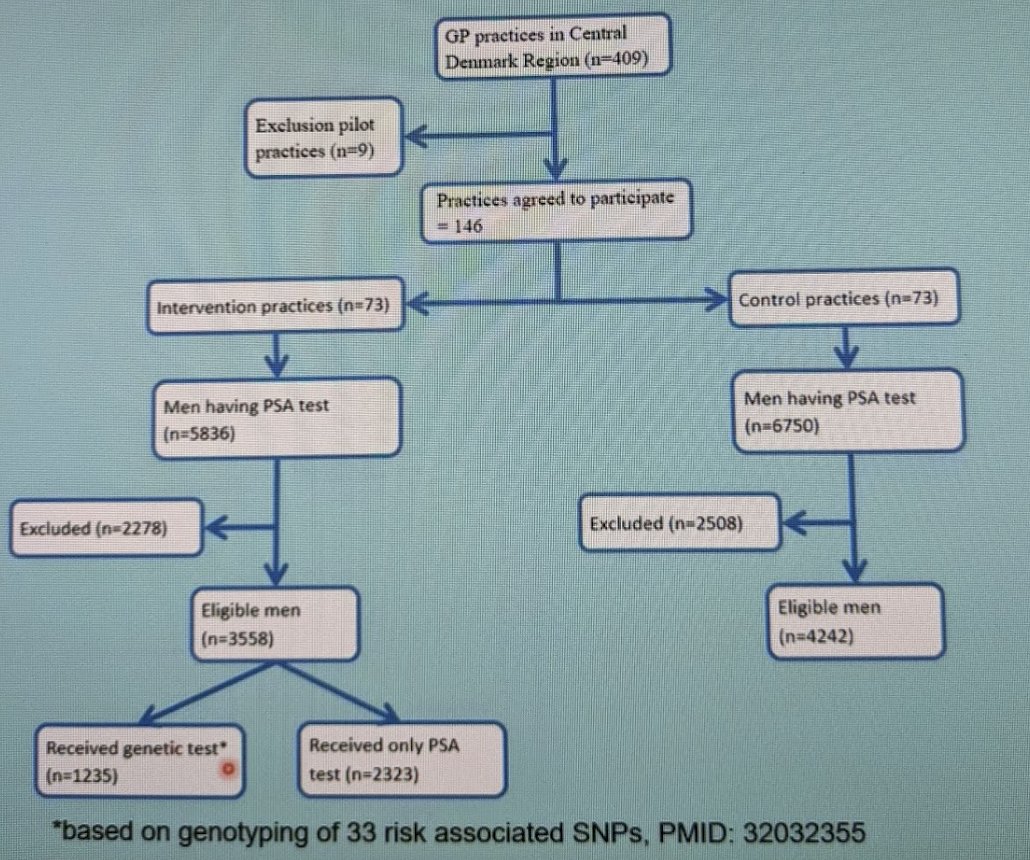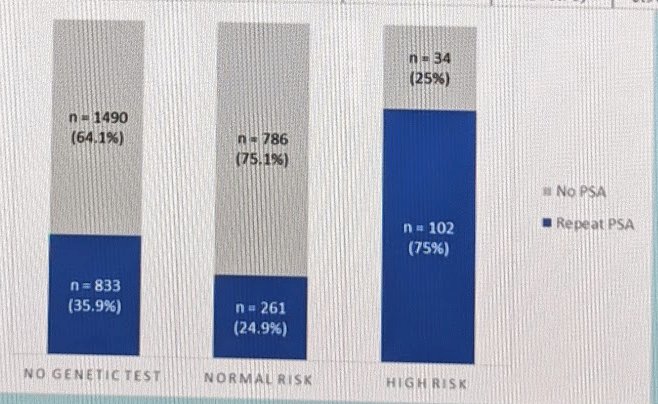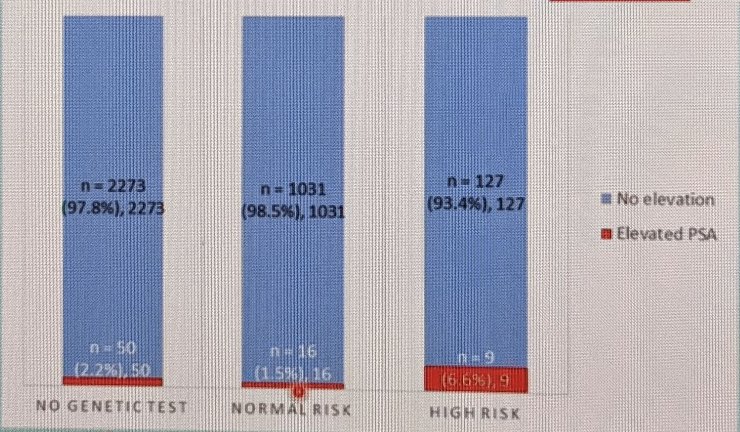(UroToday.com). At the 2021 European Association of Urology annual meeting, Dr. Jacob Fredsoe presents the ProCaRis trial, which is a risk-adapted screening trial for prostate cancer utilizing single nucleotide polymorphisms (SNPs).
He reviewed the pitfalls of prostate cancer screening, the issues with no screening, and the need to improve current screening strategies. Due to the risk of overdiagnosis, their approach was to only screen men with a high genetic risk of developing prostate cancer, based on SNPs associated with prostate cancer risk. They wanted to implement this at the level of general practice.
The ProCarIs trial (Prostate Cancer Risk Assessment Using Genetic Markers in General Practice) is a cluster randomized controlled trial at the level of general practice in Denmark.
- Men are provided a genetic lifetime risk assessment (based on genotyping of 33 risk associated SNPs)1
- Normal risk (defined as <30% lifetime risk) men were recommended for no more PSA testing (unless symptomatic or have familial disposition changes)
- High risk (defined as >= 30% risk) men were encouraged to have yearly PSA tests.
Inclusion criteria were men between the age of 18-80 with a normal PSA test at inclusion. This was a cluster-randomized trial – 73 practices in each of two arms in 6 different regions of Denmark.
1235 men received the genetic test.
- 1047 (84.8%) were Normal risk
- 136 (11.0%) were High risk
- 52 (4.2%) were unknown risk – test could not be calculated
2323 men did not get the genetic test
Full flowchart of patients seen below:

The primary endpoint was a proportion of men with a repeat PSA test within two years.

Men with high-risk rest were more likely to get a repeat PSA test than men with normal genetic risk and men who did not undergo genetic testing.
Men with normal risk rest were less likely to get a repeat PSA test than men who did not undergo genetic testing.
The next endpoint was the risk of having an elevated PSA test.

Similarly, men with high-risk genetic tests were more likely to have an elevated PSA test. Importantly, men with normal risk genetic tests and men without genetic testing had similar levels of elevated PSA.
Lastly, he did share some preliminary data on biopsy data, which seem to suggest a higher biopsy rate in men with high-risk genetic scores over time. He asked that this figure not be shared.
Presented by: Jacob Fredsoe, PhD, Assistant Professor, Department of Molecular Medicine and the Department of Clinical Medicine at Aarhus University Hospital, in Aarhus Denmark
Written by: Thenappan (Thenu) Chandrasekar, MD – Urologic Oncologist, Assistant Professor of Urology, Sidney Kimmel Cancer Center, Thomas Jefferson University, @tchandra_uromd on Twitter during the 2021 European Association of Urology, EAU 2021- Virtual Meeting, July 8-12, 2021.
References:


